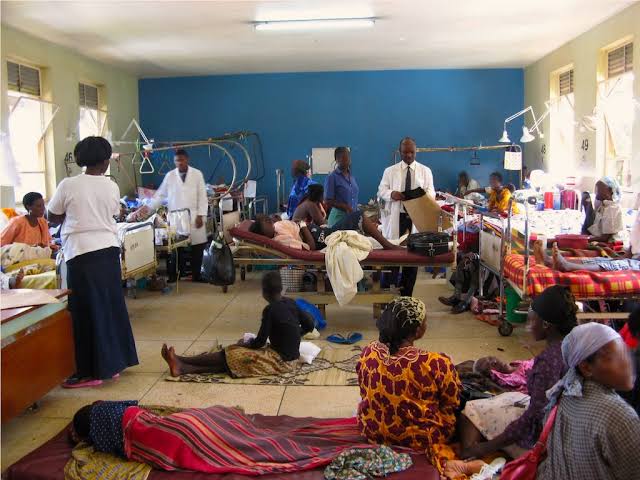As Muslims around the world celebrate Eid Al Fitr, it is a time for reflection, gratitude, and renewal., however, this is also a time to acknowledge the shortcomings of the country’s healthcare system and to call on the government to take urgent action to improve it.
Nigeria, as the most populous country in Africa, faces significant healthcare challenges. Despite being the continent’s largest economy, healthcare is underfunded, under-resourced, and under-staffed. These challenges have been further compounded by the COVID-19 pandemic, which has highlighted the weaknesses in the system and the urgent need for reform.
One of the key challenges facing the healthcare system is a lack of funding. The government allocated just 8% of its 2023 annual budget on healthcare, which is well below the 2001 Abuja Declaration to allocate at least 15 percent of its annual spending to the sector. The government also spends just 3.9% of its GDP on healthcare, below the World Health Organization (WHO) recommendation of at least 5%. This low level of investment means that the country’s healthcare infrastructure is outdated and unable to cope with the growing demand for services.
To address this issue, the government must increase its investment in healthcare. This investment should be directed towards building new healthcare facilities, improving existing ones, and purchasing essential medical equipment and supplies. This would help to reduce the burden on the existing healthcare system and ensure thats have access to quality healthcare services.
Another challenge facing the healthcare system is a shortage of healthcare professionals. According to the WHO, Nigeria has just 4.4 physicians and 0.5 nurses per 10,000 people, well below the recommended minimum of 23 physicians and 50 nurses per 10,000 people. This shortage of healthcare professionals has a significant impact on the quality of healthcare, with patients often unable to access the care they need.
To address this issue, the government must invest in the education and training of healthcare professionals. This could involve providing scholarships for students studying medicine, increasing the number of medical schools and training programs, and providing incentives for healthcare professionals to work in hot zones.
In addition to these challenges, Nigeria’s healthcare system is also facing a current Lassa fever outbreak with reports of 869 confirmed cases recorded from 26 states and 101 local government areas from January 1 to April 9, 2023. The death toll of Lassa fever so far has risen to 151 from the previous year which was 148, according to the Nigeria Centre for Disease Control and Prevention.
To stop Lassa fever, the government must take urgent action to improve disease surveillance and control measures. This could involve investing in diagnostic and treatment facilities, training healthcare professionals to recognize the symptoms of the disease, and improving public awareness campaigns to promote prevention measures.
Improving healthcare is not just a matter of meeting the basic needs of the population; it is also critical for achieving the Sustainable Development Goals (SDGs) for health. The SDGs aim to ensure healthy lives and promote well-being for all, and Nigeria’s healthcare system must be strengthened if the country is to achieve these goals.
Achieving the SDGs for health will require significant investment, but the benefits are clear. Improved healthcare will not only save lives and improve the quality of life fors, but it will also contribute to economic growth and development. A healthy population is essential for a productive workforce and a thriving economy.
As Muslims celebrate Eid Al Fitr, it is a reminder that access to quality healthcare is a fundamental right for alls. The government must act now to ensure that this right is upheld and that the country is on track to achieve the SDGs for health. The COVID-19 pandemic has exposed the urgent need for reform, and there is no time to waste. By investing in healthcare, Nigeria can ensure a brighter, healthier future for its people.




Keep it up bro.
I wish our Government are seen this , it will be of great help to us .
I think they even know better than he does; greed wouldn’t just let them do what is right.
I almost cried reading this article; oh my country.
…and I don’t see it changing anytime soon.
They Pay little or no attention to the Health Sector. I wonder the kind of country we are in.
Nice one famz. Our leaders know what to do but greed and selfishness has eaten them to the bone. Medical practitioners will continue to japa as long as there are still opportunities in abroad.